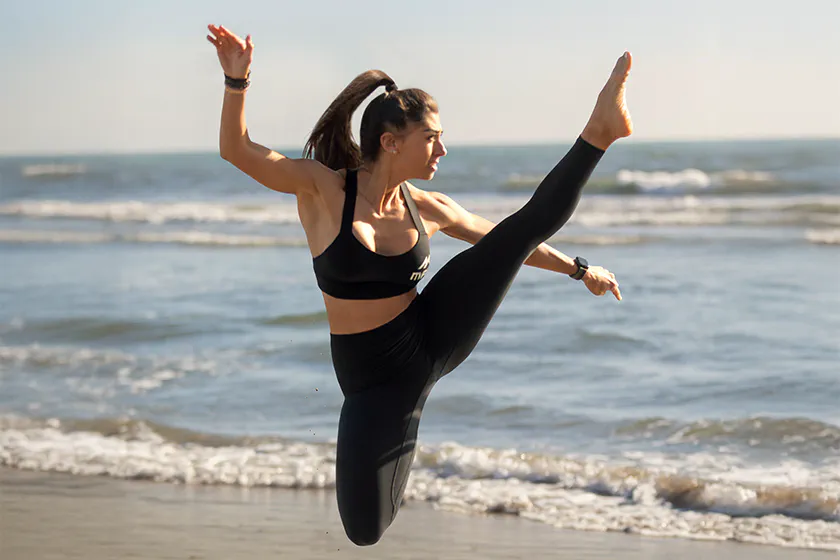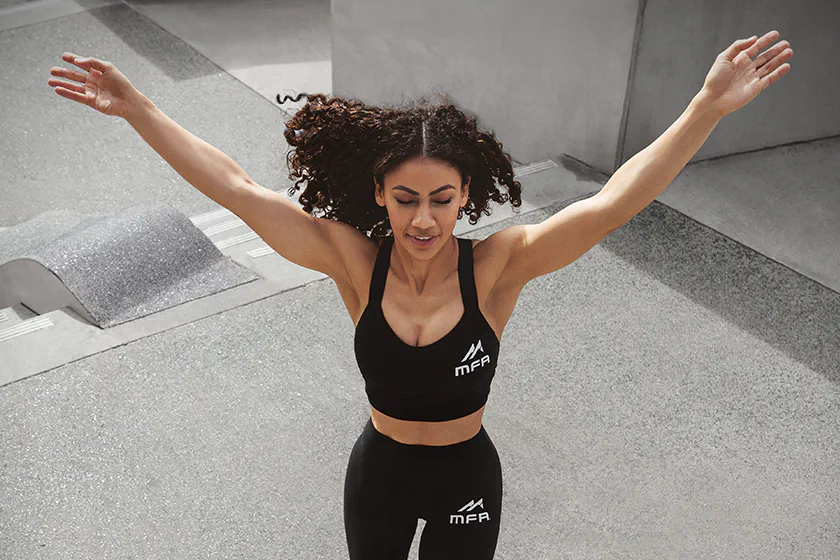The Science Behind How Exercise Can Tame Your Anxiety

Move your way to a calmer mood
If you’ve ever spent a restless night worrying about an argument with a family member or felt like running out of the room when you had to give a presentation, you are familiar with anxiety—one of our most unpleasant emotions.
Most of us experience anxiety from time to time, but some people have an actual clinical disorder. In fact, anxiety is the most common mental health problem that people report and over the last 20 years, it has risen substantially, particularly among 16 to 24-year-olds.
When people suffer from anxiety as a mental health condition, they often turn to therapy or psychotropic drugs to help them cope. While that may be necessary for some folks, other people with milder symptoms might be able to chill out through lifestyle changes alone.
One surprising anxiety buster might just be your local gym. Research has found that exercise can be a potent source of anxiety relief for many people. It not only benefits your physical health but your mental health as well.
Here’s how working out can be a natural remedy for anxiety.
What is Anxiety?
Anxiety occurs when we feel threatened by something that might harm us (“might” is the operative word here). It is often more rooted in our imagination than in fact.
While the situation might not be as dire as we think, we still torque ourselves up about it. Anxiety generates both psychological and physiological symptoms: we worry and fear the worst could happen, and we get tense, sweat, or experience a racing heart. And some of us will go out of our way to avoid any experience that makes us feel this way.
If your anxiety is so severe that it makes it difficult for you to get through your day, you would be diagnosed with an anxiety disorder by a mental health professional. This is where clinical interventions may be necessary.
How Exercise Alleviates Anxiety
When we are anxious, our fight or flight response can get triggered. This evolutionary adaptation is something that we evolved to handle environmental threats. It is meant to be a short-lived response to flee from lions and tigers. But for anxious people, this stress response is a way of life. When you live in a prolonged state of anxiety, it takes a toll on your body in negative ways.
Exercise Improves Your Brain Chemistry
For one, our amygdala, the part of the brain that processes negative emotions, becomes overactive and a cascade of biochemical reactions occurs. Cortisol rises and increases blood pressure, blood sugar, and suppresses the immune system, while adrenaline prepares your body to fight or flee.
Exercise helps us turn all this around by increasing mood elevating and stress-relieving neurotransmitters like serotonin, and GABA. Exercise reduces muscle tension, helps us sleep, which can be a potent stress reliever for the worried and weary.
Exercise Can Be Fun and Social
Anxiety can be mentally and emotionally exhausting, particularly if you have a clinical disorder. Working out can be a fun way to lift your spirits. Not all exercise programs have to involve mind-numbing hours on a treadmill.
There are all sorts of different activities that can get your blood pumping and your body moving. You can take up tennis, try dancing, run, or play pickleball. The list is endless. If you pick an activity that you enjoy, you are more likely to stick with it.
Plus, there’s nothing more mood-elevating than doing something that you enjoy, especially if you are doing it with people you enjoy being around. Exercise can provide a social outlet and way to meet new people, and cultivating stronger friendships can improve mental health.
Bottom Line
To recap, anxiety disorders are very common and on the rise. Our culture tends to breed stress: inflation, unemployment, and poor work-life balance, are all very common, and all take their toll on us. Even people who haven’t been diagnosed with a disorder can get anxious and stressed, and exercise is one effective way to alleviate anxiety.
Exercise has been shown to reduce cortisol and improve serotonin production. Getting your sweat on can help you sleep better at night, give you more energy, and provide a fun social outlet.
So, whether you prefer a solo run, a group fitness class, or a nature hike with friends, getting movement into your day can help you feel more balanced, resilient, and ready to take on life’s challenges.
Kaye Smith, PhD, is a seasoned behavioral health coach and psychologist with a specialization in women’s sexual health. With 20+ years of experience spanning psychotherapy, academia, and content development, she supports women managing anxiety, depression, stress, and menopause. Dr. Smith has contributed to the work of renowned sexologist Dr. Betty Dodson and written for platforms including Hello Clue, O.school, and Medium. Leveraging expertise in CBT, mindfulness, and motivational interviewing, she delivers clear, evidence-based insights on mental health and wellness.



